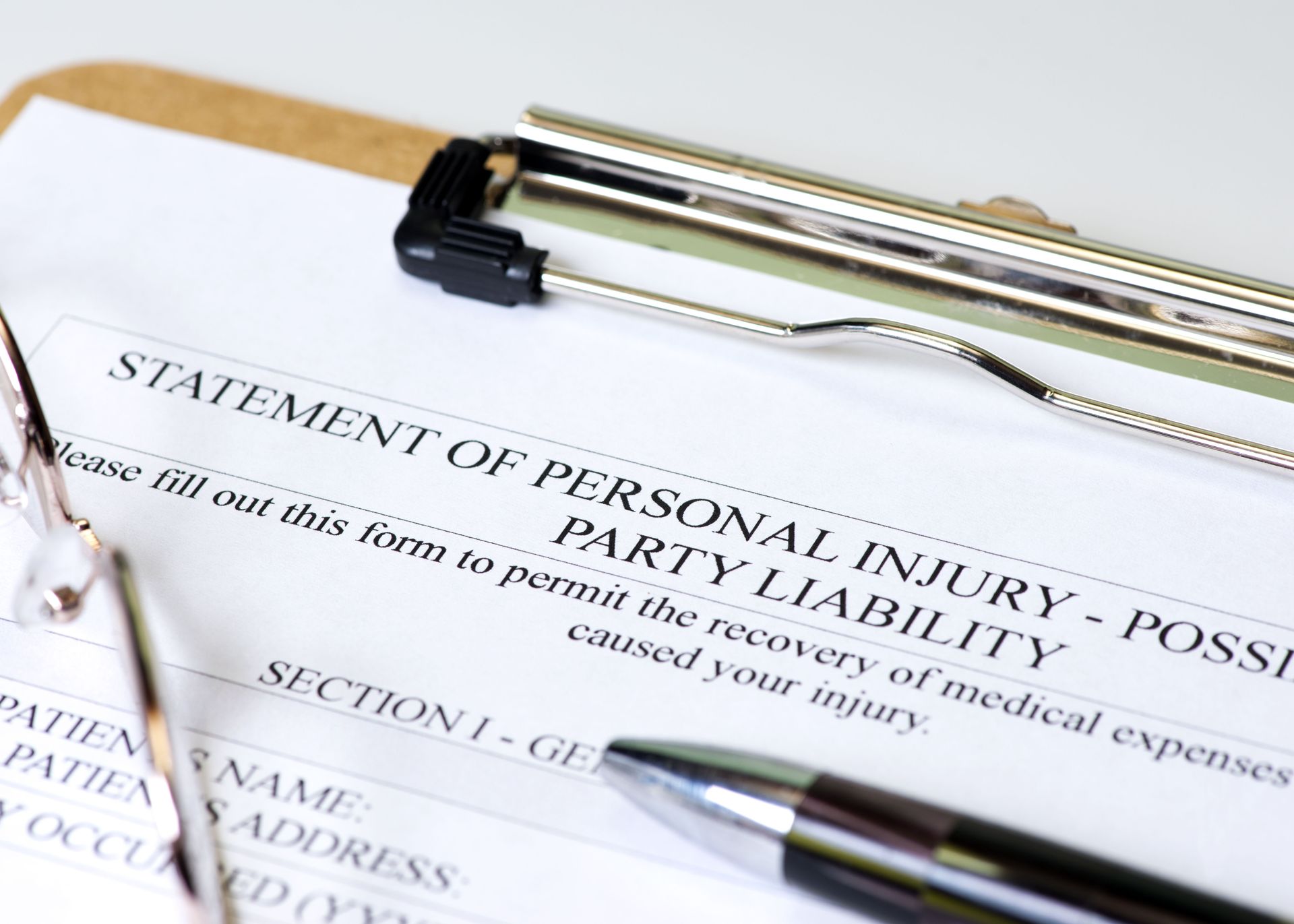5 Details Injury Lawyers Need to Know About Your Case
Injury lawyers play a crucial role in determining the outcome of your case. To build a strong case, they need comprehensive details surrounding the incident, your injuries, and the impact on your life. This article outlines the essential information injury lawyers require and explains how these details can influence your case's success. A thorough understanding of your case allows injury lawyers to effectively advocate on your behalf and increase the chances of a favorable outcome.
1. Thorough Description of the Incident
Date and Time
The specific date and time of the incident can be a pivotal detail for your injury case. It helps establish a timeline that injury lawyers use to build the narrative of what transpired. Noting the time accurately can correlate with environmental factors, like traffic conditions or business hours, that might have influenced the event. For instance, a nighttime accident might raise questions about visibility factors.
Location Details
Accurate location details support establishing jurisdiction and may help identify responsible parties. Knowing the exact spot can uncover witnesses, relevant surveillance footage, or road conditions that contributed to the incident. This is crucial for proving liability, especially if the location is a public area or has hazardous conditions like potholes or poor signage. Injury lawyers will use this information to hold responsible parties accountable.
Weather and Environmental Conditions
Weather conditions can significantly influence the dynamics of an incident. Rain, snow, or fog can create hazardous conditions, influencing the case’s narrative regarding responsibility. Similarly, environmental factors like poor lighting could have contributed. Documenting these conditions can help injury lawyers demonstrate the preventability or responsibility of the incident, potentially strengthening the case. According to the Council for Disability Income Awareness, 11% of short-term disability claims are due to personal injury, many of which are influenced by such environmental factors.
Sequence of Events
A detailed, chronological account of the situation is essential for injury lawyers to argue causation effectively. This timeline helps establish cause and effect and can be corroborated with witness testimonies or digital evidence like phone GPS data, making the case more credible. Injury lawyers rely on clear narratives to support claims and counter the opposing party’s arguments.
Involved Parties
Identifying all involved parties, including witnesses, is crucial. Gathering contact details helps coordinate statements and cross-reference different accounts. This step is essential in building a credible case, and it can also expedite communication with insurance companies or other legal representatives. Injury lawyers can use this information to ensure all relevant parties are held accountable.
2. Detailed Medical Records
Initial Medical Evaluation
The initial medical evaluation is critical in documenting the severity and nature of injuries. Doctors' notes and medical imagery like X-rays or MRIs can establish a baseline, helping to refute claims from the opposing party about pre-existing conditions. Clear and thorough documentation from the start ensures a solid foundation for injury lawyers to build their case upon.
Treatment Records
Detailed records of all treatments received are important for showcasing the seriousness and progress of your medical recovery. These records show the ongoing attention needed, from surgeries to therapy, and help demonstrate the medical necessity of interventions for the injury. Injury lawyers will use this to prove the extent of the physical harm and its impact on your daily life.
Follow-Up Care
Follow-up care details highlight the persistent nature of the injury. These records not only support your current claims but also anticipate future medical expenses, underscoring the long-term impact of the injury on your health. Injury lawyers will use this information to ensure that long-term costs are accounted for in any settlement or judgment.
Medical Expenses
Medical expenses are a central component of any injury case. Providing receipts and billing documents proves the financial burden caused by the incident. These documents help injury lawyers advocate for appropriate compensation, covering both incurred and anticipated costs related to the injury. Documenting financial losses is essential for accurately assessing the total impact of the injury.
Prognosis and Long-Term Effects
Long-term prognosis documents can help show the lasting impact of injuries. These assessments, provided by medical experts, may influence the case’s outcome by substantiating claims for ongoing care or potential loss of income due to permanent disability. Injury lawyers will factor these long-term effects into the settlement negotiation process to ensure fair compensation.
3. Impact on Daily Life and Work
Physical Limitations
Injuries often lead to physical limitations that affect daily tasks and work. Detailing these limitations is essential for emphasizing the severity of the injury and its long-term impact on the claimant’s quality of life. These limitations strengthen claims for both economic and non-economic damages. Injury lawyers will use this information to emphasize the injury’s broad consequences on personal independence and professional life.
Emotional and Psychological Effects
Injury-related emotional effects, such as anxiety or depression, can be just as debilitating as physical injuries. Documenting these psychological impacts through therapy notes or personal accounts substantiates claims for non-economic damages based on mental anguish. Injury lawyers will work to ensure that the emotional toll of an injury is fully considered in your case.
Work and Income Disruption
Injuries often lead to missed work or reduced income. Documenting work absences and the effect on job performance is crucial for claims related to lost wages and diminished earning capacity. Work disruptions, such as job role changes or lost career opportunities, should also be carefully recorded. Injury lawyers will use this information to secure compensation for the lost income and job opportunities.
Documentation From Employers
Employer documentation regarding missed work or job changes strengthens claims for lost wages and career disruption. This may include reports on reduced productivity or adjusted job duties. It provides solid evidence of the financial impact caused by the injury. Injury lawyers can use this documentation to prove the economic damages incurred due to the injury.
Personal and Family Life Changes
Injuries can significantly affect personal and family dynamics. Changes in caregiving roles, household responsibilities, or social activities should be documented, as they can be included in claims for non-economic damages. These changes demonstrate the broader impact the injury has had on the claimant’s life. Injury lawyers will leverage this information to present a full picture of how the injury affects both the individual and their family.
4. Insurance Information
Personal Insurance Coverage
Knowing the details of personal insurance coverage—such as health, auto, and liability policies—is crucial. This understanding helps injury lawyers pursue all potential avenues for compensation, ensuring that policy limits and claims processes are navigated effectively. Injury lawyers can also guide you through the complexities of dealing with multiple insurance companies to maximize your recovery.
Applicable Policy Limits
Understanding insurance policy limits is key to setting realistic expectations for compensation. Awareness of these limits helps inform negotiation strategies, ensuring that compensation aligns with policy realities while exploring other potential sources for recovery. Injury lawyers will factor these policy limits into settlement negotiations and litigation strategies.
Third-Party Insurance Involvement
Third-party insurance policies—such as those held by employers or businesses where the incident occurred—can complicate claims. Coordination with these insurers is vital to determine liability and compensation. Having a clear understanding of their role can help streamline the claims process. Injury lawyers will work to integrate all third-party insurers into the case to ensure comprehensive compensation.
Claims Process and Status
Staying informed about the status of insurance claims helps ensure timely resolution. Regular updates on the progress of the claim, including any pending appeals or challenges, equip injury lawyers with the information necessary to make informed decisions and adjust strategies accordingly.
Providing comprehensive and detailed information about your case is crucial for injury lawyers to effectively represent you. Accurate and thorough documentation helps build a strong case, potentially leading to a favorable outcome. Ensuring that your lawyer understands every aspect of your situation empowers them to advocate more effectively on your behalf, ultimately aiming for the best possible legal resolution.





Share On: